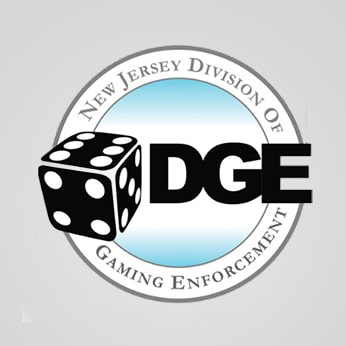

The state of New Jersey is traditionally regarded as one of the most prominent hubs of the gambling industry, both in the United States and globally. Atlantic City stands as the largest gambling centre, attracting gambling enthusiasts from around the world. However, responsible gambling is unattainable without proper licensing and oversight, a responsibility that lies with the New Jersey Division of Gaming Enforcement for commercial casinos.
Establishment History

In its operations, the DGE is guided by the Casino Control Act and its associated regulations and statutes. Their mandates govern and economically justify the gaming business. To achieve this, the organization’s specialists conduct investigations, audits, and inspections, the results of which may lead to administrative or criminal prosecution.
Leadership of the DGE
The head of the DGE is the acting director. Currently, this position is held by Mary Jo Flaherty, an attorney specializing in gaming regulation in the state of New Jersey with over 40 years of experience. She joined the Division in 1980, holding various managerial positions, overseeing the licensing departments for employees and casinos, and serving as an assistant attorney general. She has held the position of acting director since 2011.
The Regulator’s Main Functions
Any casinos operating within the state of New Jersey, including operators, owners, and employees, must be licensed. To obtain a license, relevant documents must be submitted to the specialized department of the DGE, after which the license applicants undergo an investigation, the results of which are presented to the Casino Control Commission. Based on the submitted materials, the Commission decides whether to grant or deny the license. Licensing documents are issued to both individuals and legal entities that meet the legal requirements, including integrity, accountability, and reputation.
Another responsibility of the DGE is to ensure compliance with the Casino Control Act and the regulations set forth by the Casino Control Commission in operating gaming establishments. This includes addressing complaints from customers and employees, including issues of unequal employment conditions. The scope of influence also encompasses other matters related to the daily operations of commercial casinos. Upon identifying violations of the Law and Regulations, DGE specialists initiate legal action against the offenders.
DGE investigators monitor the activities of all casinos located within the state of New Jersey on a daily basis. This ensures compliance with regulatory requirements and allows for the prompt investigation of identified violations. Working in conjunction with investigators are state police officers, which facilitates the swift resolution of issues related to criminal prosecution in cases of serious violations.
Technical Services Bureau (TSB)
The DGE division encompasses the Bureau of Technical Services (TSB), which assesses the integrity and functionality of electronic and internet gaming equipment installed in New Jersey casinos.
It comprises several structural units:
- Engineering Division
- Cybersecurity and Digital Analytics Division
- Information Technology Research Division
- Game Quality Assurance Division
The Bureau conducts testing and verification of equipment and software, ensuring the accuracy of win calculations, bonuses, and jackpots in gaming machines. TSB personnel test all electronic games before they can be utilized within the state. Statistical tests determine probability distributions, fairness, and payouts for all new games. Laboratory testing serves as the primary criterion for subsequent licensing.
How Licensing is Carried Out
A license is the fundamental document required for operators, owners, companies, and casino employees. It serves as a guarantee that the gaming business complies with laws and regulations, upholds integrity and propriety, and is free from any criminal influence.
The applicant submits a specialized form to obtain a license for the relevant line of business.
After this, the legal and investigative staff of the DGE investigate each individual and entity proposed for licensing in the field of gaming services and casino operations (CSIE).
According to the law, the license consists of three sections:
- 92a (1) and (2) – licenses related to gambling;
- 92a (3) – ancillary licenses;
- 92c (1) – registered suppliers.
The first two types of licenses concern gaming equipment, as well as developers, providers, and distributors of slot machines. The investigation particularly considers the applicant’s reputation, integrity, and propriety, as well as their financial stability and accountability. They must not engage in any activities prohibited under Section 86 of the Casino Control Act. The conduct of gaming activities and the supply of gaming products is only possible after a thorough investigation, including testing of slots and associated software.
Prospects and Development
Currently, the New Jersey Division of Gaming Enforcement is focused on monitoring digital gambling that employs artificial intelligence and virtual reality technologies. This approach facilitates the legalization of both land-based and virtual casinos while mitigating the influence of organized crime.
The presence of the Bureau of Technical Services aids in providing an objective assessment of games installed across all types of casinos. The expertise accumulated over more than 40 years of active operation, coupled with close collaboration with law enforcement agencies, ensures the integrity and honesty of operators vetted by the DGE.
Conclusion
Despite the fact that the jurisdiction of the DGE extends solely over the state of New Jersey, obtaining a license from this organization serves as a distinctive hallmark of quality for any casino, operator, or gaming software provider. Consequently, numerous companies associated with the gambling industry choose to collaborate with this regulator. The extensive experience, implementation of effective control systems, and the adoption of modern technologies have led many countries developing their gaming industries to authorize operators based on the licenses granted by the DGE.
